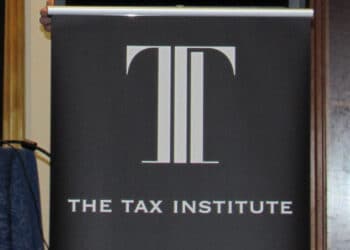Aaron Dunn, CEO of Smarter SMSF, said there were “multiple elements” regarding superannuation on budget night, especially surrounding issues that are ultimately set to shape future policy.
“One was the Objective of Superannuation and the other was the consultation paper or discussion paper around the retirement phase of super, that closed earlier this year,” Dunn said.
“SMSFs naturally are a far more mature sector when it comes to retirement phase with the number of people drawing pensions, but what it does highlight is the fact that we have a demographic that is moving to retirement if we think about our Baby Boomer generation, and whether we as a as an industry at large have the infrastructure in place to be able to achieve the outcomes in the best financial interests of those members when it comes to SMSF.”
Dunn said the discussion paper raised some interesting things, including that SMSFs have unique challenges regarding the management and trusteeship of the fund.
“If you’re in an APRA fund it’s quite clear that if you become incapable of being able to do things in the event of a disability or incapacity, it doesn’t change the trustee structure of a retail fund while in an SMSF context, it absolutely does,” he said.
“Therefore, the discussion paper was starting to contemplate what things might we need to look at from a policy perspective and one of those in question was the context of the retirement income covenant, which doesn’t apply to SMSFs.”
Dunn said the SMSF sector does not have an equivalent piece of legislation that sits within section 52(AA) of the Superannuation Industry (Supervision) Act and an ASIC report last year highlighted that there are still some concerns concerning the implementation of this within superannuation funds.
“Therefore, does this discussion paper around the retirement phase of super open an opportunity for SMSFs to come back and get involved in this process as well?” he asked.
“A lot of the discussion is about how we, as an industry, can utilise this for retirement planning, dealing with loss of capacity, thinking about issues around powers of attorney, different exit strategies and so forth, and this is language that’s not new to SMSFs.”
He continued that the ATO has spent a lot of time over the last few years looking at the exit issues concerning SMSFs, and in its literature regarding setting up a fund there is commentary around preparing for the worst or preparing for stages where individuals and the fund or members need to exit.
“The SMSF Association had made a submission in respect to this area, and noted that whilst some elements of the retirement income covenant may be beneficial, there is a whole range of overlap that it had concerns with that would ultimately lead to cost and complexity around the administration of the funds and which it doesn’t believe would be of any major benefit or gain,” he said.
“We thought this was an area that could fall into the auspices of what the government might have looked at from a budget point of view, but clearly it hasn’t. However, I suspect it will become more relevant to superannuation and budget policy moving forward or policy more generally, and what role SMSFs might play in that, too.”


